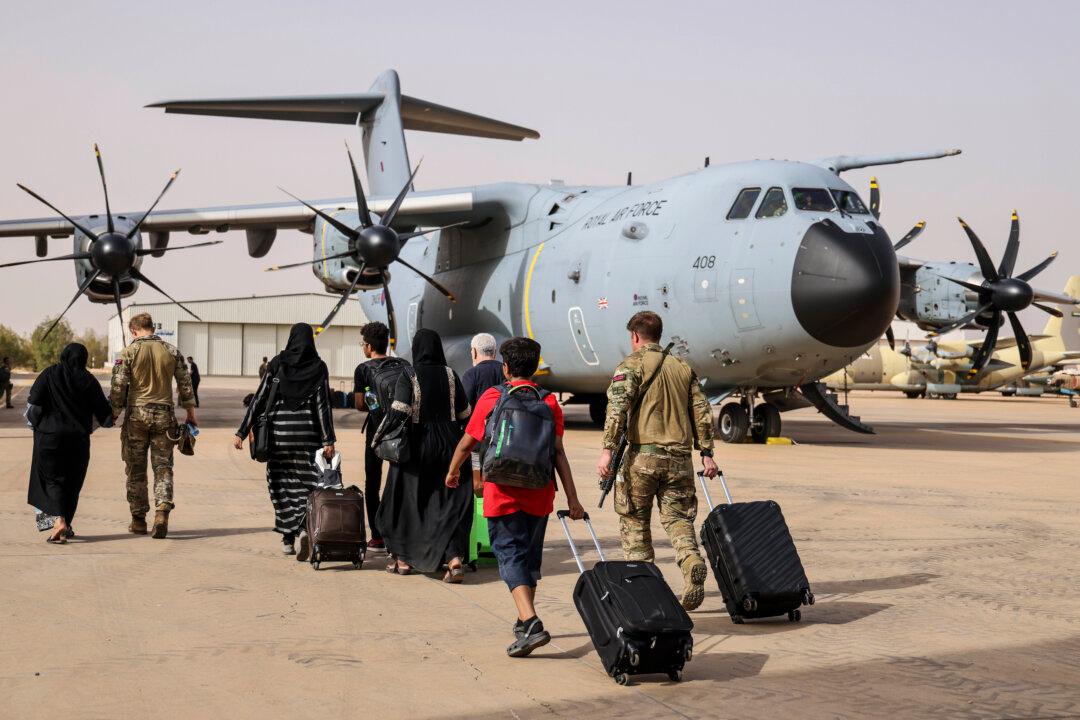Britain’s Royal Air Force (RAF) airlifted 1,888 people on 21 flights from war-torn Sudan in the UK government’s evacuation operation, which ended on Saturday evening.
The final UK evacuation flight departed from the Wadi Saeedna airfield near the Sudanese capital Khartoum at 10 p.m. local time on Saturday, the Foreign, Commonwealth, and Development Office (FCDO) said.





